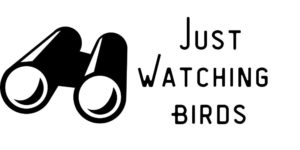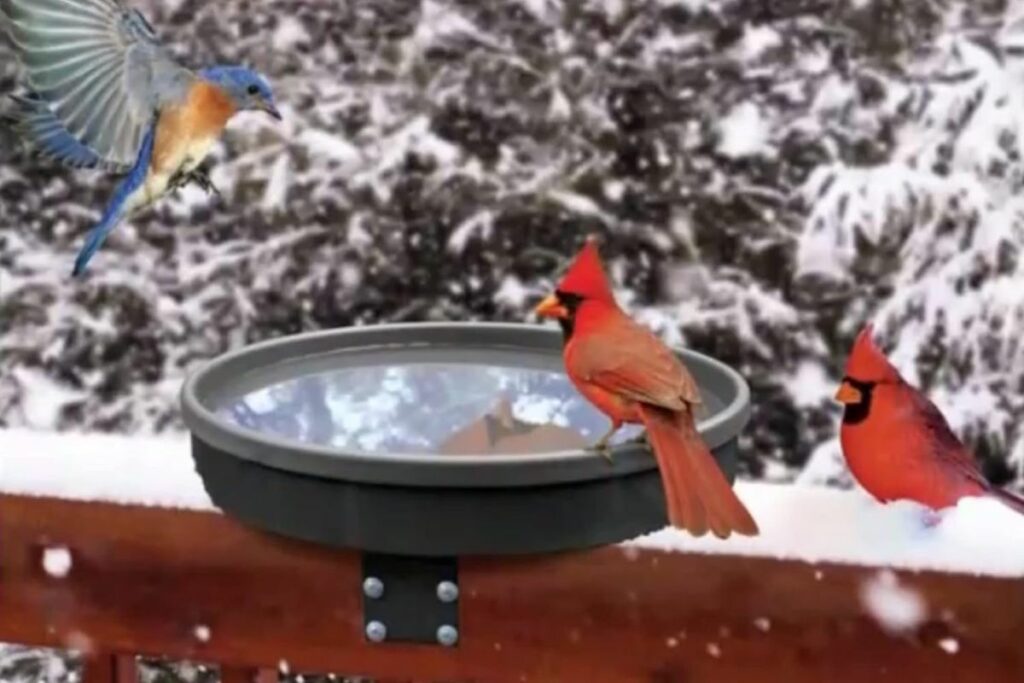As an Amazon Associate, we earn from qualifying purchases with no additional costs for you.
Wild birds live outside in the wild, where they find food and water and rear their chicks. Watching birds is a fun and relaxing activity, so it is no surprise that people want to attract birds to their gardens. This is why many people choose to feed wild birds, but some think this is a bad idea.
There are situations when you should not feed wild birds. Feeding wild birds during the warmer months when food sources are plentiful is unnecessary. If there is a disease outbreak, then removing all feeders is advised. Feeding wild birds in a nature reserve or state park is illegal.
Read on to learn why you shouldn’t feed wild birds and how you can attract birds to your garden besides using feeders.
TIP: If you want to check out the best pair of binoculars for bird watching, we recommend a pair of waterproof and fog-proof 8 x 42 binoculars like the Celestron – Outland X 8×42 Binoculars (Amazon link).
When Not To Feed Wild Birds
It is better to garden for the birds rather than put out artificial feeding stations. If you feed birds, the best time is during winter when it is more difficult for birds to find food and water.
During periods of natural abundance, such as spring and summer, insects, seeds, and other food sources are plentiful. Feeding birds during these times can disrupt their natural foraging behaviors and may lead to dependency on human-provided food.
You should definitely not put out feeders if there is a disease outbreak in the bird population. Certain diseases are also more likely to spread through feeders.
For instance, Salmonella bacteria can spread easily when birds congregate at a feeder, especially if the feeder is not kept clean. Eye diseases in house finches can also easily spread via feeders. If there is an outbreak, you must take down your feeder.
Watch this video to see the effects of eye disease in house finches:
Avian influenza is another illness that can spread rapidly through a population. The illness is more common among birds of prey, game birds like chickens, and waterfowl, but it could spread to other species.
This interesting video explains more about Avian influenza:
Another reason feeders are not always a good idea is because they can attract vermin like rodents. While squirrels are native wildlife in the United States, some of the rats are not.
Feeding birds in certain locations, such as near airports or urban areas prone to bird strikes, can pose safety risks to birds and humans. Feeding birds in areas where invasive species are present can contribute to the spread of diseases and disrupt local ecosystems.
TIP: Choosing the right bird feeder is crucial when you want to attract birds on your backyard. There are a lot of options on how and where to place a bird feeder. Check out my picks on different bird feeders below (Amazon links):
– Free-standing Bird Feeder
– Hanging Bird Feeder
– Bird Feeder with Camera
Foods You Should Never Feed to Birds
It’s essential that you avoid feeding human-type foods, like bread, milk, and junk food, to birds. These are not foods that wild birds should be eating. If you do put out food, it can be bird seed, mealworms, suet, or fruit.
Better still is to plant trees and bushes that will naturally provide food so that you don’t need to supply food in artificial feeders.
TIP: Are you looking for high-quality food for wild birds on your backyard? I recommend using Wagner’s products with the highest quality grains used in blending and made in the USA (Amazon links):
– Deluxe Treat Blend Wild Bird Food
– Eastern Regional Wild Bird Food
– Western Regional Wild Bird Food
– Midwest Regional Wild Bird Food
– Southern Regional Wild Bird Food
The Benefits of Bird Gardening
Bird gardening is planting bushes and trees that will attract birds. It is best to grow indigenous plants if you can, as this will also attract many native insects, which insect-eating birds will then feed on.
By creating bird-friendly habitats, gardeners can bring many different kinds of birds to their gardens, making them more beautiful.
Videos like this explain why we should garden for birds:
Berry-Producing Plants to Attract Birds
There are a number of berry-producing plants that are helpful to birds, especially in winter when there is a lack of insects around. Some berry-producing plants you can use if you are in the U.S. include Viburnum, Elderberry, Cranberry, and Huckleberry.
Some good nectar-producing plants for hummingbirds include Coral Honeysuckle, Wild Columbine, and Spotted Bee Balm. The flowers of these plants provide an excellent source of nectar for hummingbirds and others. It also may help the local bee population as well.
Wild Grasses And Weeds for Birds
To most people, weeds and tall grasses are unsightly and should be removed, but these actually provide an important source of food for birds. Besides the seeds being eaten, such plants also attract many spiders and insects, such as flies, wasps, beetles, and more.
These small creatures all provide an important source of food for all the birds in the garden. This is especially important in the nesting season, where even seed-eating birds will look for insects to feed their chicks, as this is a good source of protein needed by growing baby birds.
TIP: Winter can be a hard time for birds to find enough food. Can you feed them, and what should you feed them? Read this article to find out. This informative guide explains the best time for bird-watching in every season.
Bird Food found in Leaf Litter And Wood Piles
Leaving leaf litter alone is recommended because this is what attracts and provides a home for small invertebrates and insects that robins, sparrows, and other birds will feed on. You can watch as the birds use their feet and beaks to shuffle through the leaves and detritus in search of food.
Wood piles can also do a good job of attracting invertebrates, but this is best kept quite far from the house as it may attract other animals, like snakes. Most snakes are harmless and should not be something to worry about. If you don’t want a wood pile, you can settle for the leaf litter.
Birds and Water
It is a great idea to provide a source of water for the birds. This can be in the form of a bird bath or, if you are able, a garden pond.
A pond provides the best option but costs more in terms of space, time, and money. It takes careful planning to create a garden pond that will work well for your garden and for birds. A bird bath is inexpensive and is a good option, but you need to clean it regularly.
Similar to how bird feeders can spread disease, so too can a dirty bird bath. Do not use harsh chemicals to clean out a bird bath. Scrubbing and rinsing with hot water, then refilling with cold water, is often enough to keep the bath clean.
Empty and refill the bird bath often as a way to help remove any old detritus or harmful microbes from the water. It also helps to get rid of mosquito larvae, which are likely to be present if you don’t frequently rinse out the bird bath.
TIP: A bird bath is necessary to attract birds on your backyard. There are a lot of options on how and where to place a bird bath. Check out my picks on different bird baths below (Amazon links):
– Free-standing Bird Bath
– Hanging Bird Bath
– Deck Mounted Bird Bath
Conclusion
There are times when you should not feed wild birds. This is the case if there is a disease outbreak in the area, such as, finch eye disease or avian influenza.
You should also not feed birds if you are not prepared to keep the feeder clean. It is better if you can grow plants that attract birds and provide food and shelter in a natural way.
If you do feed birds, then feeding during winter is recommended since this is when natural food sources become scarce for the birds, and they may struggle to survive.

